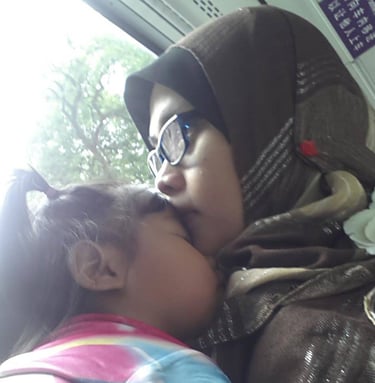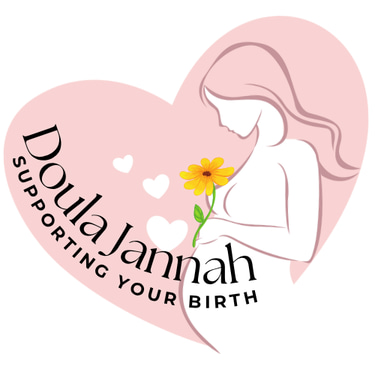Postpartum Depression
All about Postpartum Depression and how to get help in Singapore
6/13/20254 min read


The recent heartbreaking news of a mother and her newborn’s tragic passing in Singapore is a painful reminder that postpartum mental health needs more attention. So many mothers suffer in silence, believing that their struggles are just part of the “new mom experience.”
As a doula, I’ve seen firsthand how overwhelming the postpartum period can be. Sleep deprivation, hormonal shifts, birth recovery, and the pressure to be a “perfect” mom—it’s a lot. And when there’s no support, no one to talk to, and no understanding of postpartum mental health, things can spiral quickly.
This is why it’s so important to talk about postpartum depression (PPD), recognize its signs, and create a support system that prevents moms from feeling completely alone.
Baby Blues vs. Postpartum Depression: What’s the Difference?
Not all mood swings after birth mean depression. Many moms experience “baby blues”—temporary mood swings, irritability, and crying spells due to hormonal changes. These usually pass within two weeks.
But postpartum depression is different. It’s deeper, lasts longer, and needs professional attention.
💔 Signs of Postpartum Depression (PPD):
Feeling numb, hopeless, or disconnected from the baby.
Intense crying spells that don’t seem to stop.
Guilt or shame—feeling like you’re failing as a mother.
Extreme anxiety or panic attacks.
Withdrawing from loved ones, not wanting to talk or be around people.
In severe cases, thoughts of harming yourself or your baby.
If you or a loved one is experiencing these signs, help is available, and you don’t have to go through this alone.
How a Doula Can Help Prevent Postpartum Depression
As a birth and postpartum doula, my role doesn’t end when your baby is born. A huge part of my work is helping mothers navigate the emotional rollercoaster of early motherhood.
✔ Emotional Support – Birth is transformative, but it can also be traumatic. A doula provides a safe space to talk about your feelings without judgement.
✔ Birth Processing – Many moms struggle emotionally after birth because things didn’t go as planned. A doula helps you process your birth story so you can heal mentally and emotionally.
✔ Postpartum Care—Instead of feeling lost, isolated, and exhausted, a doula helps you transition smoothly into motherhood with practical support like newborn care guidance, breastfeeding help, and self-care tips.
✔ Spotting the Signs Early—Doulas are trained to recognize when a mother needs more than just emotional support. If you’re showing signs of PPD, anxiety, or birth trauma, a doula can gently guide you toward professional help.
What You Can Do to Protect Your Mental Health After Birth
🌿 1. Build Your Postpartum Support System
Many cultures surround new mothers with care, but modern motherhood often leaves women feeling isolated. Before birth, make a postpartum plan just like you would for labour!
✔ Who will help with meals?
✔ Who can come over so you can rest?
✔ Who will check in on your emotions?
You deserve support beyond the baby shower!
🌿 2. Have Realistic Expectations About Motherhood
Social media makes it seem like motherhood is all about cuddles and picture-perfect moments—but that’s not the full story. It’s okay to struggle. It’s okay to ask for help. You are NOT failing.
🌿 3. Prioritize Rest & Nourishment
Lack of sleep and poor nutrition can worsen postpartum mood swings. Simple changes—like eating nutrient-dense meals, staying hydrated, and resting whenever possible—can help balance your hormones.
🌿 4. Talk About How You’re Feeling
You do NOT have to pretend everything is okay. Whether it’s your partner, a friend, your doula, or a therapist, make sure you have someone who will listen without judgement.
🌿 5. Seek Professional Help if Needed
If you ever feel completely overwhelmed, hopeless, or detached, please reach out for help. Therapy, counselling, or even medication can save lives. There is no shame in getting help—only strength in choosing to heal.
You Are Not Alone —Support is Available
If you’re feeling lost or anxious about postpartum recovery, I am here to help. My doula services are designed to give you the support, confidence, and emotional care you deserve during this transition.
Let’s make sure no mother has to struggle alone. If you want guidance and support through birth, postpartum, or emotional healing, reach out to me today.
How to get help in Singapore
Recognizing and addressing postpartum depression (PPD) is crucial for the well-being of both mother and child. In Singapore, several resources are available to support mothers experiencing PPD:
1. KK Women’s and Children’s Hospital (KKH) Women’s Mental Wellness Service
KKH offers a Postnatal Depression Intervention Programme (PNDIP) that provides psychiatric care and counselling for women suffering from PPD. The program includes emotional health screenings and personalized care plans. Non-KKH patients are also welcome to seek assistance through this program.
2. Postnatal Depression Support Groups
Connecting with others who are going through similar experiences can be incredibly beneficial. Support groups offer a safe space to share feelings and coping strategies. While specific groups may vary, healthcare providers and hospitals often have information on local support networks.
3. Professional Counseling Services
Mental health professionals, such as those at Annabelle Psychology, specialize in supporting mothers dealing with PPD. They offer therapeutic interventions tailored to individual needs.
4. National Helplines
For immediate assistance, the Mental Health Helpline at 6389-2222 provides support and guidance for individuals facing mental health challenges, including PPD.
5. Online Resources
Websites like HealthHub offer comprehensive information on understanding and managing postnatal depression, including self-assessment tools and guidance on seeking help.
It’s essential to remember that seeking help is a sign of strength, and early intervention can significantly improve outcomes. If you or someone you know is struggling with postpartum depression, don’t hesitate to reach out to these resources for support
